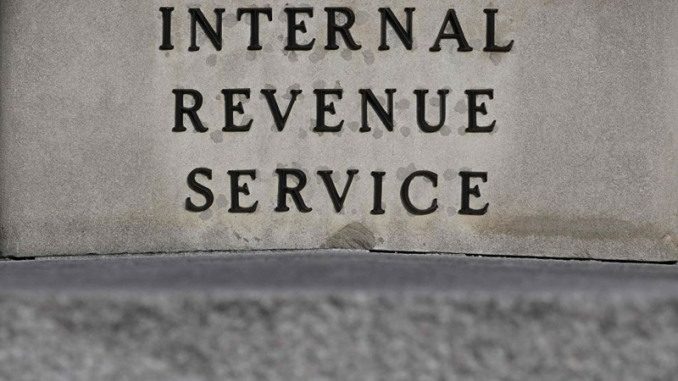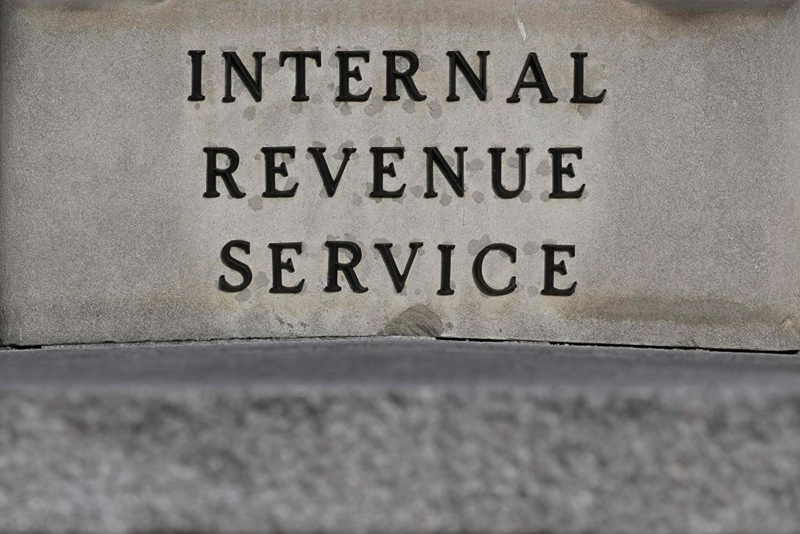

OAN Shannon Kelland
UPDATED 4:57 PM PT – Tuesday, January 10, 2023
A bill was approved Monday evening that will reverse the $80 billion in extra funding set aside for the agency by 2022’s Inflation Reduction Act (IRA) that intended to increase enforcement abilities of the IRS to target the wealthy under Democrats agenda.
“In this world, nothing is certain except death and taxes,” Benjamin Franklin said.
The legislation would abolish the Internal Revenue Service (IRS), eliminate the national income tax, and replace it with a national consumption tax.
House Speaker Kevin McCarthy (R-Calif.) announced that the final results of the straight party line vote of 221 to 210. He noted that the passing of the bill had been a GOP promise.
Representative Buddy Carter’s (R-Ga.) brought forward the Fair Tax Act that aimed to reel in the IRS, remove the national income tax and other taxes to be replaced by a single consumption tax.
“Instead of adding 87,000 new agents to weaponize the IRS against small business owners and middle America, this bill will eliminate the need for the department entirely by simplifying the tax code with provisions that work for the American people and encourage growth and innovation,” he said.
The bill had 11 co-signers, including Kat Cammack (R-Fla.), Jeff Duncan (R-S.C.), Bob Good (R-Va), Andrew Clyde (R-Ga.), and House Freedom Caucus chairman Scott Perry (R-Pa.)
“I support the Fair Tax because it simplifies our tax code. This transforms the U.S. tax code from a mandatory, progressive, and convoluted system to a fully transparent and unbiased system which does away with the IRS as we know it. It is good for our economy because it encourages work, savings, and investment. Thank you to my colleague Rep. Buddy Carter for leading this effort to simplify the system for American taxpayers,” said Good.
This policy illustrated the stance that House Republicans are taking with the Biden administration and their policies expanding the federal government.
“As a former small business owner, I understand the unnecessary burden our failing income tax system has on Americans. The Fair Tax Act eliminates the tax code, replaces the income tax with a sales tax, and abolishes the abusive Internal Revenue Service. If enacted, this will invigorate the American taxpayer and help more Americans achieve the American Dream,” said Duncan.
Representative Adrian Smith (R-Ne) advocated for the Fair Tax Act.
He added that the bill “stops autopilot funding for an out-of-control government agency that is perhaps most in need of reform.”
Smith said that the enhanced funding for the IRS is “part of the broad Biden administration strategy to tax and audit exponentially more Americans.”
The Biden administration claimed that the IRA funding would go towards the IRS for more audits to hold millionaires accountable however, an analysis from Syracuse University showed that most audits target low-income wage earners.
The Treasury Department estimated in a 2021 report that $80 billion would fund just under 87,000 new employees, but not all of those would be new agents. The IRS currently has about 82,000 employees and more than half are eligible for retirement over the next five years. The funds allocated by the IRA would also cover updating the technology systems.
The Democrats planned to use the new enforcement capabilities to help close the yawning tax gap, which is the amount the IRS is paid by taxpayers versus the actual amount that is owed. That deficiency is roughly $310 billion, according to a recent IRS analysis.
Democrats also planned to use the increased tax revenue to help pay for the IRA itself.
The approval of this legislation lines up with Danny Werfel returning as IRS Commissioner, who would lead the agency’s makeover.
Newly elected chairman of the House Ways and Means Committee Jason Smith (R-Mo.) made a statement on Monday.
“[Werfel] should plan to spend a lot of time before our committee answering questions about the leaking of sensitive taxpayer information and an agency with a history of targeting conservative Americans,” said Smith.

Be the first to comment